Why wouldn’t you actually swallow the carbs?
It was the first day of my PhD.
We’re discussing how carbohydrate mouth rinsing might increase performance. In other words, how swirling a sports drink through your mouth for a few seconds and then spitting it out, might make you faster.
It sounded like a ‘scientifically interesting, but no practical applications whatsoever’ type of research.
Why would you do all that trouble with rinsing and spitting it out?
Actually drinking your sports drink must be much more effective, right?
Why you need carbohydrates during prolonged exercise
Carbohydrate and fat are the two most important fuels during exercise.
As we all know far too well, the body can store enormous amounts of fat. You always have more than enough fat available to use as fuel during exercise.
One problem though.
The body is slow at using fat as fuel. So while your fat contains a lot of potential energy, that energy won’t become available fast enough to fuel high intensity exercise.
Carbohydrates are the opposite.
Dietary carbohydrates are stored in both the liver and muscle as glycogen. Glycogen can be used as fuel at a much higher rate than fate.
Therefore, the higher the intensity, the more you rely on carbohydrates (1).
But you can only store small amounts of glycogen. Glycogen can fuel you early on during exercise, but begins to run out after 90-180 minutes.
Once glycogen is depleted, you cannot burn fat fast enough to compensate. At this point, also called boinking, or hitting the wall, you simple cannot maintain the your intensity.
Luckily, you don’t have to solely rely on body fat or glycogen.
You can ingest carbohydrates during exercise, and use it as fuel. Think of sports drinks for example. So it’s not really surprising that carbohydrates improve performance during exercise that last 90 minutes of longer.
Are carbohydrates more than just a fuel?
During exercise that lasts an hour or less, you don’t run out of glycogen. So in theory, there’s no need for carbohydrates.
Therefore, researchers were quite surprised when they found that carbohydrates improved performance during a 1 hour time trial (2). They followed up their research, but this time the carbohydrates where not ingested, but directly infused into the subjects (3).
The result? No effect on performance!
So when carbohydrates are ingested, they improved performance. But when they are infused, they don’t work anymore all of a sudden.
So the researchers speculated that when carbohydrates are ingested, they must have some effect before they are absorbed into the blood. They wondered if the taste of carbohydrates might block the feeling of fatigue in the brain.
So they performed a new study during which the subjects performed carbohydrates mouth rinses (swirling for 5 seconds, then spitting it out) while trying to complete a cycling time trial as fast as possible.
And indeed, carbohydrate mouth rinsing increased performance (4)!
Does a carbohydrate mouth rinse always work?
Quite a few studies have investigated carbohydrate mouth rinses since then.
Some even found that a carbohydrate mouth rinse was more effective than actually ingesting the carbohydrates. Likely because the carbohydrates spend more time in the mouth.
But while some studies found improved performance, others did not.
Our lab did a study a few years ago, but with a unique twist.
Our subjects were not fasted before the exercise test. Often, exercise studies are done in an overnight fasted state, to make sure that the different food habits of subjects do not influence the results.
But in the real world, almost all athletes eat before competition. So we gave our subjects a standardized breakfast (depending of body weight).
We found no performance enhancing effect in this situation (5). We suggested that a carbohydrate mouth rinse improves performance when you’re fasted, but maybe not if you’ve eaten recently?
My recent carbohydrate mouth rinse study
We wanted to figure out this carbohydrate mouth rinse effect for once and for all.
We decided to repeat both the original study in the fasted state, as well as our study in the fed state, all in one study.
So subjects would perform 4 trials:
- fasted + placebo mouth rinse
- fasted + carbohydrate mouth rinse
- fed + placebo mouth rinse
- fed + carbohydrate mouth rinse
We expected that the carbohydrate mouth rinse would not increase performance in the fed state, but that it would in a fasted state.
As expected, carbohydrate mouth rinsing did not increase performance in the fed state. But too our surprise, we also found no increase in performance in the fasted state.
Practical implications
Despite that we do not see it in our lab, the majority of research suggests that carbohydrate mouth rinsing can improve exercise performance of 30-60 min when subjects are fasted. But it can be questioned how relevant that is, since almost all athletes eat before competition (which is advisable in the first place)
In contrast, most studies studies performed in the fed state found little to no performance enhancing effect. Therefore, I do not recommend carbohydrate mouth rinsing during competition.
However, some athletes intentionally train in a fasted state. They do this as it forces their body to become more efficient at burning fat.
A carbohydrate mouth rinse may lower your perception of fatigue during this style of training.
Now I pass it to you.
Do you think carbohydrate mouth rinsing is a useful tool for athletes?
Leave a comment below.

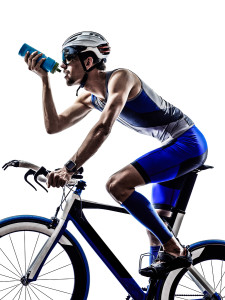
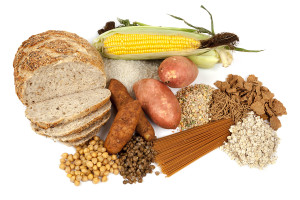

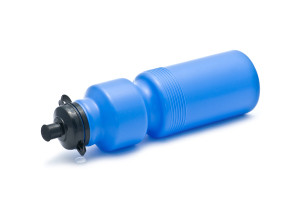
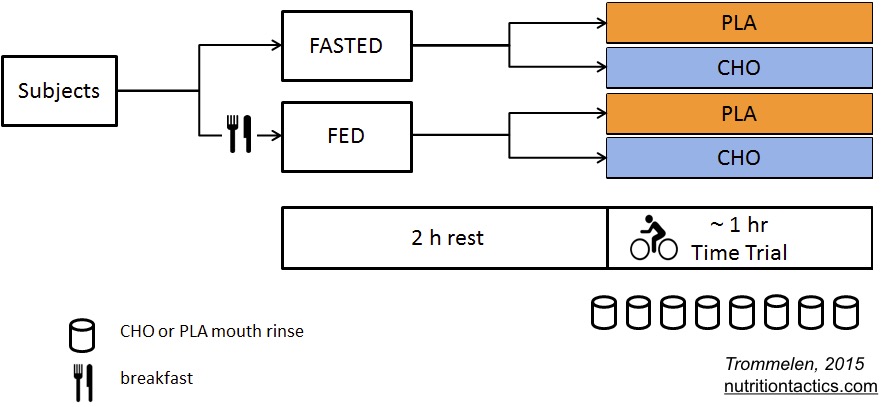
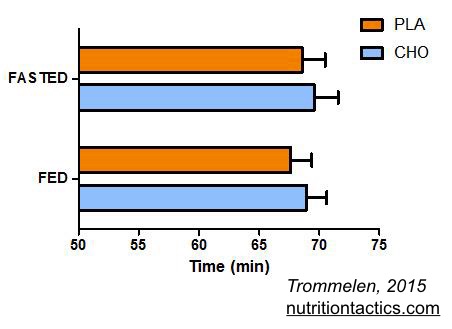
Leave a Reply